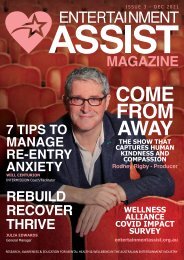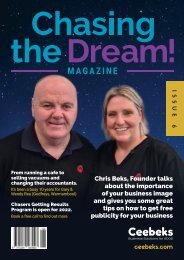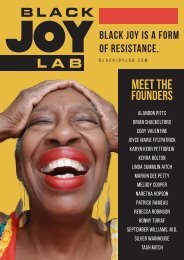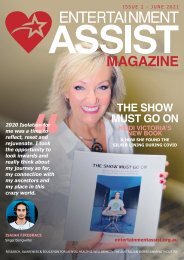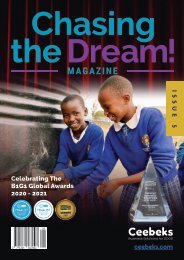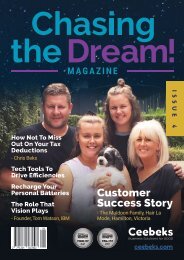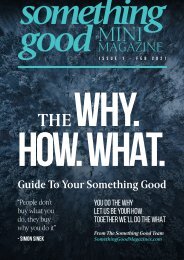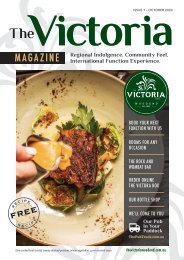Gift Global Magazine - Issue 1
Welcome to Issue 1 - Giftglobal magazine from founder, Sam Beard. Subscribe for free at giftglobal.org/magazine. What is it like to sit across the table from someone who may have been perpetrators or victims of crimes against humanity? Believe it or not, former Amnesty International negotiator Richard Reoch tells us that nothing will be accomplished if we don’t have an open mind free of prejudice and assumptions. According to Bob Rotella, legendary sports psychologist, the process of truly being at peak performance at a dramatic moment is the same for a stellar athlete on the cusp of a championship or for the rest of us regular people who have to act quickly in a decisive decision. Too often, there is no time to think. But it is simpler than we think to get out of own way and clear the rails.
Welcome to Issue 1 - Giftglobal magazine from founder, Sam Beard.
Subscribe for free at giftglobal.org/magazine.
What is it like to sit across the table from someone who may have been perpetrators or victims of crimes against humanity? Believe it or not, former Amnesty International negotiator Richard Reoch tells us that nothing will be accomplished if we don’t have an open mind free of prejudice and assumptions.
According to Bob Rotella, legendary sports psychologist, the process of truly being at peak performance at a dramatic moment is the same for a stellar athlete on the cusp of a championship or for the rest of us regular people who have to act quickly in a decisive decision. Too often, there is no time to think. But it is simpler than we think to get out of own way and clear the rails.
You also want an ePaper? Increase the reach of your titles
YUMPU automatically turns print PDFs into web optimized ePapers that Google loves.
ISSUE #1<br />
giftglobal.org | 1
A-ha is the moment some<br />
important realization sinks into<br />
the depths of our mind and our<br />
being. It is not easy today. There is<br />
so much information clutter and<br />
busyness that it is often very hard<br />
to cut through the haze and take<br />
away deeper meaning.<br />
A-ha has poignancy in its<br />
simplicity and it is why we chose<br />
it as our title.<br />
In this issue of A-ha, we<br />
present the first pairing of<br />
notable voices who are great<br />
teachers and use storytelling<br />
to help us better connect with<br />
them and some important ideas<br />
that we can immediately plug<br />
into our lives.<br />
If you like this , join up to receive A-ha<br />
magazine each month direct to your<br />
inbox giftglobal.org/magazine<br />
The A-ha <strong>Magazine</strong> by GIFT <strong>Global</strong> is owned and published electronically by GIFT. a registered non profit with 501 (c) status.<br />
Copyright 2019 GIFT. All rights reserved. No part of this electronic magazine may be reproduced without the written consent<br />
of GIFT. Requests for permission should be directed to: JOEL BROKAW - <strong>Gift</strong> <strong>Magazine</strong> Editor<br />
GIFT <strong>Global</strong>, Suite 7265 1201 N. Orange Street • Wilmington, DE 19801<br />
Co-created with<br />
SomethingGood<br />
<strong>Magazine</strong>s.com<br />
2 | giftglobal.org giftglobal.org | 3
ECOV<br />
RING<br />
THE LOST ART OF LISTENING<br />
For nearly a half century, Richard Reoch has put into practice<br />
the tools of mindfulness to deal with some of the most<br />
horrific and gut-wrenching situations humanity has faced in<br />
recent decades. He has devoted his life to defending human<br />
rights, working for peace and protecting the environment.<br />
Born in Toronto, Canada and raised in a Buddhist family,<br />
Richard moved to London in 1971 to begin a 23- year long<br />
career with Amnesty International, becoming its global<br />
media chief.<br />
He also served as President of Shambhala, one of the world’s<br />
largest Buddhist organizations. He was a trustee of The<br />
Rainforest Foundation and has been engaged in conflict<br />
resolution in Northern Ireland, Sri Lanka and Myanmar,<br />
among others. He was recently invited to chair the trustees<br />
of the Mindfulness Initiative, which provides training and<br />
support for the application of mindfulness in public policy<br />
development.<br />
A CONVERSATION WITH<br />
RICHARD REOCH<br />
An Amnesty International Negotiator’s Secret<br />
for Dealing with the Unthinkable<br />
W<br />
hat is it like to sit across the table from someone who<br />
may have been perpetrators or victims of crimes against<br />
humanity? Believe it or not, former Amnesty International<br />
negotiator Richard Reoch tells us that nothing will be<br />
accomplished if we don’t have an open mind free of prejudice and<br />
assumptions. In order to separate truth from lies in the moment,<br />
we must also be in tune with our intuition and to energies that are<br />
often unspoken. And nothing will be possible if we do not cultivate<br />
the pure art of listening.<br />
Today, there is a heightened level of aggression and hostility<br />
in public discourse in countries around the world. The spaces<br />
for mutual understanding, compromise and working together<br />
despite our differences have been largely shut down. The<br />
world is crying out for people who are capable of listening to<br />
the other side and opening their hearts to those with whom<br />
they may deeply disagree. Because if we remain in a state<br />
of perpetual combat, we are not going to be able to address<br />
some of the deep issues that are plaguing contemporary<br />
society. Nor will we be able to work cooperatively as a species<br />
to protect our biosphere.<br />
Being a good listener definitely requires some inner work.<br />
Thankfully, one of the great fruits of mindfulness practice<br />
is the recovery of the lost art of listening. In order to be<br />
open to another person and to be able to listen fully to what<br />
they are communicating -- more than simply what they say<br />
-- we have to be able to understand what our own minds<br />
are doing. We need to be able to set aside our thoughts and<br />
feelings, as well as our egocentricity and our attachment to<br />
our opinions in order to give space to others. That makes it<br />
genuinely possible to listen more profoundly to what is being<br />
communicated behind the words.<br />
4 | giftglobal.org<br />
giftglobal.org | 5
Richard Reoch with Senior monks and<br />
police during the war in Sri Lanka<br />
appearances seemed to be the very<br />
emblem of the crime of torture,<br />
turned out to be, in my long years<br />
of experience, one of the most<br />
determined fighters against torture<br />
I have met.<br />
weight of responsibility as a Buddhist,<br />
looking into the eyes of people who<br />
have experienced unspeakable horror<br />
at the hands of people who claim to be<br />
defending Buddhism.<br />
Once I met an army commander who was in charge<br />
of units that were accused of torture. It was my job<br />
to open a discussion with him. In my experience,<br />
what is absolutely essential is to enter into any<br />
such dialogue with a spirit of inquiry. Doing so is the<br />
most valuable use of that time together. The chance<br />
of convincing a person to change their beliefs and<br />
behaviors in one conversation is quite minimal.<br />
Rather, the great gift to come out of the conversation<br />
is to find out why the other person sees the world<br />
in such a radically different way. Sometimes, the<br />
result of that spirit of inquiry produces surprising<br />
results.<br />
I opened the conversation with the commander<br />
from a place of honesty and inquiry. What I soon<br />
discovered was that rather than being defensive<br />
or hostile to me, he revealed something entirely<br />
different. He explained in great depth the efforts he<br />
was making to prevent torture under his command,<br />
most notably by cooperating with the International<br />
Red Cross to identify very specific incidents so he<br />
could deal with the officers who were carrying out<br />
torture. He also indicated to me that if he faced lack<br />
of cooperation from them, he would close those<br />
interrogation centers down.<br />
I knew that he was not fooling me, and I was able to<br />
verify everything that he said. I also knew that he<br />
faced political pressure and required considerable<br />
courage to act the way he did. In fact, in the course<br />
of this conversation, the person, who from outward<br />
I have learned things that I could<br />
never have imagined. I have met<br />
Buddhist monks who have publicly<br />
been in favor of war. In order to<br />
understand them, I have spent long<br />
periods of time in their temples, not<br />
endeavoring to argue with them but<br />
simply to become familiar with them.<br />
Through this patient relationshipbuilding,<br />
I found that their public<br />
posture was sometimes very<br />
different to their private agonies.<br />
So, I think this principle about<br />
actively being willing to inquire<br />
and listen to others – especially<br />
those who are different from us or<br />
with whom we disagree -- has for<br />
me been extremely productive in<br />
terms of opening up dialogue and<br />
contemplating profound questions.<br />
Recently, I was in the living hell of<br />
refugee camps on the border of<br />
Myanmar and Bangladesh to see<br />
the Rohingya people who are the<br />
victims of Buddhist terror. They<br />
were certainly surprised to see an<br />
old white man who looked them in<br />
the eye and said, “I am a Buddhist,<br />
and I have<br />
come here to express my horror and<br />
my sorrow at what has been done in<br />
the name of Buddhism, and which is<br />
utterly the opposite of the Buddhist<br />
teachings.”<br />
People have questioned what the<br />
good people of Germany were doing<br />
during the Holocaust, or what the<br />
good people of Spain were doing<br />
during the Spanish Inquisition, or<br />
what moderate Muslims have been<br />
doing in the face of the rise of Isis. In<br />
these refugee camps, I found myself<br />
facing that same question. I felt the<br />
That is why I believe that, while<br />
there is no guarantee of success,<br />
we cannot afford not to make this<br />
experiment.<br />
Follow RichardReoch.info<br />
Encouragingly, I have found that<br />
mindfulness can build bridges across<br />
differences that seem to separate us<br />
from our common humanity. Over the<br />
last four years, I have been spending<br />
part of my time teaching at a university<br />
in Morocco. It began as a project to<br />
teach mindfulness to young imams<br />
who had completed their primary<br />
Islamic education and were due to<br />
become the equivalent of priests in<br />
their communities. I wondered if it<br />
would be possible to really bridge the<br />
cultural and conceptual barriers that<br />
have come up over so many centuries<br />
of misunderstanding and conflict. But<br />
what I found was that the presentation<br />
of contemporary neuroscience<br />
combined with the direct experience<br />
of pure mindfulness practice crossed<br />
all barriers. The first comment that<br />
these young imams made to me after<br />
their first practice session was “this<br />
will help our prayer.” I realized in that<br />
moment that mindfulness practice is<br />
in a way the purest expression of our<br />
common humanity. It is something that<br />
transcends cultures and history. It is in<br />
a sense an expression of our essential<br />
nakedness in the cosmos.<br />
That deeply personal experience<br />
is the basis of profound listening.<br />
There is understandable skepticism<br />
about whether the ancient traditions<br />
of mindfulness practice can be made<br />
publicly available on a mass scale<br />
and still have the same potency. But<br />
if there was ever a point in history<br />
where as many people as possible could<br />
benefit from that personal experience<br />
of mindfulness (and the resulting<br />
interpersonal experience), it is now.<br />
6 | giftglobal.org<br />
giftglobal.org | 7
THE GREAT ATTITUDE SHIFT THAT<br />
TURNS GREAT ATHLETES INTO<br />
CHAM<br />
PIONS<br />
A CONVERSATION WITH LEGENDARY<br />
SPORT PSYCHOLOGIST<br />
BOB ROTELLA<br />
T<br />
he process of truly being at peak performance at a dramatic moment<br />
is the same for a stellar athlete on the cusp of a championship or for<br />
the rest of us regular people who have to act quickly in a decisive<br />
decision. Too often, there is no time to think. All of the physical practice<br />
to make these experiences more routine is good. But according to Bob<br />
Rotella, what can make the biggest difference are some mental hacks that<br />
can remove the fear of failure, insecurities and other negative attitudes that<br />
sit deep inside us. It’s simpler than we think to get out of our own way and<br />
clear the rails.<br />
Bob Rotella’s job is to help some of the world’s greatest<br />
athletes improve their performance. He considers<br />
himself a coach, but you won’t find him talking much<br />
about technique and form. As one of the most renowned<br />
sports psychologists, Bob spends most of his time<br />
getting people to change the way they view themselves,<br />
focusing on improving the attitudes and beliefs that<br />
stand in their way from achieving their best. While<br />
we may never sink a buzzer-beater or catch a pass to<br />
win a championship, we can all use the kind of attitude<br />
adjustments that Bob Rotella recommends. Here are<br />
some of the highlights from our conversation:<br />
“It’s hard to change anybody at anything unless they<br />
really want to change badly. In sports, if you can’t get into<br />
the starting lineup, you’re going to work at getting better.<br />
If you’re having trouble with your shooting in basketball<br />
or your team is not winning, you get very interested in<br />
what you need to do beyond the physical training to<br />
change the outcome. Winning is very highly valued, so<br />
disciplined athletes are also willing to work on their<br />
confidence, their concentration and their composure.<br />
My whole approach is “let’s make this stuff as simple as<br />
possible.” It doesn’t need to be complicated. I want it to<br />
be really understandable so nobody has excuses like “I<br />
don’t know what you’re talking about.”<br />
It is clear that what makes elite athletes and any person<br />
truly successful requires more than talent and good<br />
intelligence. Your belief in yourself, your passion, your<br />
day-to-day commitment to being in a great state of mind<br />
are equally if not more important. Staying positive and<br />
optimistic is key. I ask, “Have you ever had a day when<br />
you’re in that state of mind? Good. So, now we know you<br />
are capable of being in that state of mind.<br />
8 | giftglobal.org<br />
giftglobal.org | 9
Now you have to get really good at<br />
anticipating what are all the things<br />
that happen that tend to take you<br />
out of that attitude. You have<br />
to be prepared to not let those<br />
things own you. A lot of people<br />
would rather see themselves as<br />
a victim. So, you either decide<br />
that you’re in control of your life<br />
because you have a free will or<br />
you become the victim and decide<br />
that it’s everybody else’s fault.<br />
Success requires taking a lot<br />
of personal responsibility. I<br />
spend very little time dealing in<br />
the past. If somebody has had<br />
a rough upbringing, I’ll usually<br />
let them tell me about it before<br />
I stop them. “OK, good. Here’s<br />
the problem. Half of the most<br />
successful people in the world<br />
came from messed up families.<br />
They developed great attitudes<br />
and made it big in life. They did<br />
wonderful things and did not let<br />
how their parents brought them<br />
up ruin their lives. The question<br />
is, do you want an excuse for<br />
being miserable, negative and<br />
a pessimist? Or do you want to<br />
be one who says, ‘I had a really<br />
rough time but I’m going to make<br />
sure I don’t think about the way<br />
my parents used to treat me’.” I<br />
tell them, “I don’t really care why<br />
you used to have a bad attitude.<br />
Starting today, you’re going to<br />
have a great attitude because you<br />
are capable of doing it, and it’s<br />
a choice you’re going to make.”<br />
At some point you have to<br />
take away the excuses. That’s<br />
the difference between the<br />
psychology of greatness and<br />
other forms of psychology that<br />
dwell in abnormal behaviors. In<br />
college, most of the classes are<br />
in abnormal psychology.<br />
Why aren’t we studying the<br />
happiest, most successful<br />
people in the world, instead of<br />
explaining why people are messed<br />
up? The starting point is always<br />
this: are you going to go after your<br />
dreams or are you going to throw<br />
them away? As you grow up, are<br />
you going to get bigger ideas and<br />
dreams or are you going to lower<br />
the bar? At some point, you have to<br />
believe in your talent and your ideas<br />
and dreams more than anybody else<br />
does. You may run into naysayers<br />
who tell you “people from this town<br />
can’t do what you say you want to<br />
do.” You have to be able to tell them,<br />
“Well, I’m going to be the first.” It’s<br />
your life and you get one shot at it.<br />
So are you going to believe and go<br />
after some big ideas, or are you<br />
going to focus on all the things that<br />
people say about you that maybe<br />
are not fantastic?<br />
What I tell everyone is basically<br />
you’re trying to separate yourself<br />
from everyone else in the world<br />
who does what you do. You might be<br />
just lucky enough to have way more<br />
talent—but not many people have<br />
just way more talent. Somebody<br />
might tell me that “so and so is<br />
just lucky.” I say, “Sure, luck plays<br />
some role but successful people<br />
believe that you have to make your<br />
own breaks and luck.” The better<br />
your attitude, the more you work,<br />
the more you persevere, you start<br />
having some lucky things happen<br />
to you. And when you get your lucky<br />
breaks, you‘ve done all the work and<br />
learned all the skills and are ready<br />
to take advantage of them. But if you<br />
haven’t prepared, the opportunities<br />
show up and pass you by.<br />
What I do is very honest, and I’ve got<br />
to get the people I work with to be<br />
very honest as well. If you thought<br />
you were performing right up to<br />
your ability level coming in second<br />
place, then you could live with it. It’s<br />
an easy solution for most of us that<br />
we’re really not that good. “I’m good,<br />
but I’m just pretty good—I’m never<br />
going to be great.”<br />
But when you know you’re not giving it your best,<br />
are you ready to look inside and be really honest<br />
with yourself? When you do start living your<br />
dreams and begin to experience success, you<br />
will face other challenges. The fear of failure is<br />
always there. The lack of consistency is another.<br />
You may have won golf tournaments, but never<br />
a major. You’re talking about people who have<br />
spent more time and energy devoted to this one<br />
thing more than anything else they’ll ever do in<br />
life. And they really care about it. And all of a<br />
sudden they have to go and trust what they’ve<br />
done. A lot of what that trust is about is getting<br />
your conscious mind out of it when the stakes<br />
are high—when you have to make that 4 foot<br />
putt in the last hole or that last free throw when<br />
the game is on the line.<br />
Most people in sports have to learn how to<br />
compartmentalize. Nobody in the stands cares<br />
if you had a fight that afternoon with your wife<br />
or girlfriend. Michael Jordan said a long time<br />
ago that he decided that every night some kid is<br />
at the game, and it’s the only chance in their life<br />
they are going to see him play—so he better have a<br />
great game. When great athletes are in a big game,<br />
they’re going to feel some nervousness. I think<br />
there’s a big difference between being nervous<br />
and being anxious. Being anxious is a mental state<br />
where you’re worrying about missing the shot or<br />
having a bad swim. Nervousness is the natural<br />
butterflies we feel when we’re excited being in a<br />
good competition. You get into your lane and you<br />
know the other swimmers are really good, too.<br />
You know you have to swim well today if you will<br />
have a chance of winning. You learn to get your<br />
mind in an optimistic place and turn it loose. You<br />
go out there and swim with freedom rather than<br />
spending the whole race worrying about having<br />
a bad swim. The big question is always: are you<br />
going to be in that positive state of mind every day<br />
or are you going to be a once-in-a-while player, as<br />
Vince Lombardi once called it? The people who<br />
are the most successful are the everyday players.<br />
They’re energized and feeling good every day.<br />
It’s a big part of their purpose to have a great attitude.<br />
How do they do it? They have to work very hard at it.<br />
10 | giftglobal.org<br />
giftglobal.org | 11
The word CONNECT denotes the most powerful<br />
action a human being can take. It is the gateway<br />
to enlightenment and higher purpose, setting us<br />
on the path to boundless discovery. CONNECT<br />
is the transformational mindfulness life skill<br />
that GIFT is working to advance to make the<br />
world a better place.<br />
GIFT is taking action on several fronts to<br />
advance mindfulness approaches as a powerful<br />
solution to a host of problems affecting life on<br />
Earth. GIFT’s method is to let actions speak<br />
louder than words by advancing cuttingedge<br />
initiatives with a defined purpose and<br />
measurable outcomes. We’d love to connect<br />
with you at giftglobal.org and help change<br />
the world.<br />
SAM BEARD<br />
President & Founder, GIFT<br />
12 | giftglobal.org<br />
Cell: 302-545-1677 • Email: sam@sambeardGIFT.org<br />
Skype: s.beard624 • Website: www.GIFT<strong>Global</strong>.org,<br />
Sambeard.org





